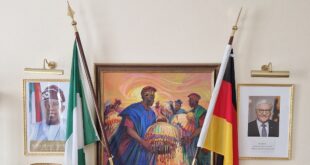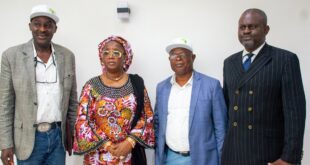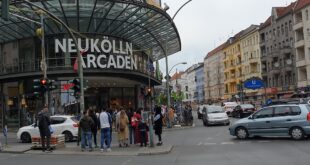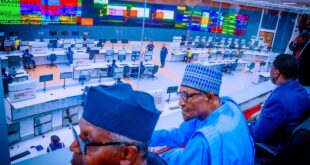German investments in Africa stabilised in 2020 and 2021 after reaching a record high before the outbreak of the coronavirus pandemic in February 2020. This was revealed by the Afrika-Verein der deutschen Wirtschaft e.V., an association of German companies active in Africa, in a press statement on Chancellor Olaf Scholz’s visit to Senegal, Niger and South Africa.
The investment stock on the continent declined by only 500 million euros in the main crisis year of 2020. Stefan Liebing, Chairman of Afrika-Verein, described the news as “a welcome development”.
“It is important that the Chancellor visits important African partner countries so early in his term of office. The German business community very much welcomes this. However, it is now urgently necessary that it does not stop at a visit, but that Germany also realises concrete opportunities for cooperation. Africa can help with gas supplies in the short term and become the most important supplier of green hydrogen in the medium term,” Liebing said.
In addition, the continent could make an important contribution to the diversification of supply chains, for example in the supply of raw materials, in the mechanical engineering and automotive supply industries, he opined. “The first encouraging successes in this regard are already visible. We should use the German G7 Presidency to conclude a comprehensive pact with Africa on investment in sustainable technologies.”
It is in the interest of Germany, but also of Africa, to intensify cooperation in investment and job creation, Liebing said. The financing of new projects continues to be a major obstacle, he however noted.
“German industry is ready to realise climate-friendly industrialisation and the supply of green energy in Africa in big steps if the federal government is prepared to assume part of the risks from development funds, so that SMEs in particular could obtain the necessary loans,” said Stefan Liebing.
“We need more investment in local food production and processing. Africa doesn’t want handouts, but help for self-help, which only the economy can provide.” This, however, requires a rethink of the German government’s development policy, he said.
“We hope that the turnaround in foreign trade and development policy will find its prelude in this visit. Not much has happened yet in concrete terms. We have to tackle this now in close coordination between the German government and the business community.”
Chancellor Scholz’s visit to African, coming only after six months of assuming office, has been praised by observers as a sign that the current German government would seek closer partnership with the continent.
Adira Kallo
 THE AFRICAN COURIER. Reporting Africa and its Diaspora! The African Courier is an international magazine published in Germany to report on Africa and the Diaspora African experience. The first issue of the bimonthly magazine appeared on the newsstands on 15 February 1998. The African Courier is a communication forum for European-African political, economic and cultural exchanges, and a voice for Africa in Europe.
THE AFRICAN COURIER. Reporting Africa and its Diaspora! The African Courier is an international magazine published in Germany to report on Africa and the Diaspora African experience. The first issue of the bimonthly magazine appeared on the newsstands on 15 February 1998. The African Courier is a communication forum for European-African political, economic and cultural exchanges, and a voice for Africa in Europe.






















